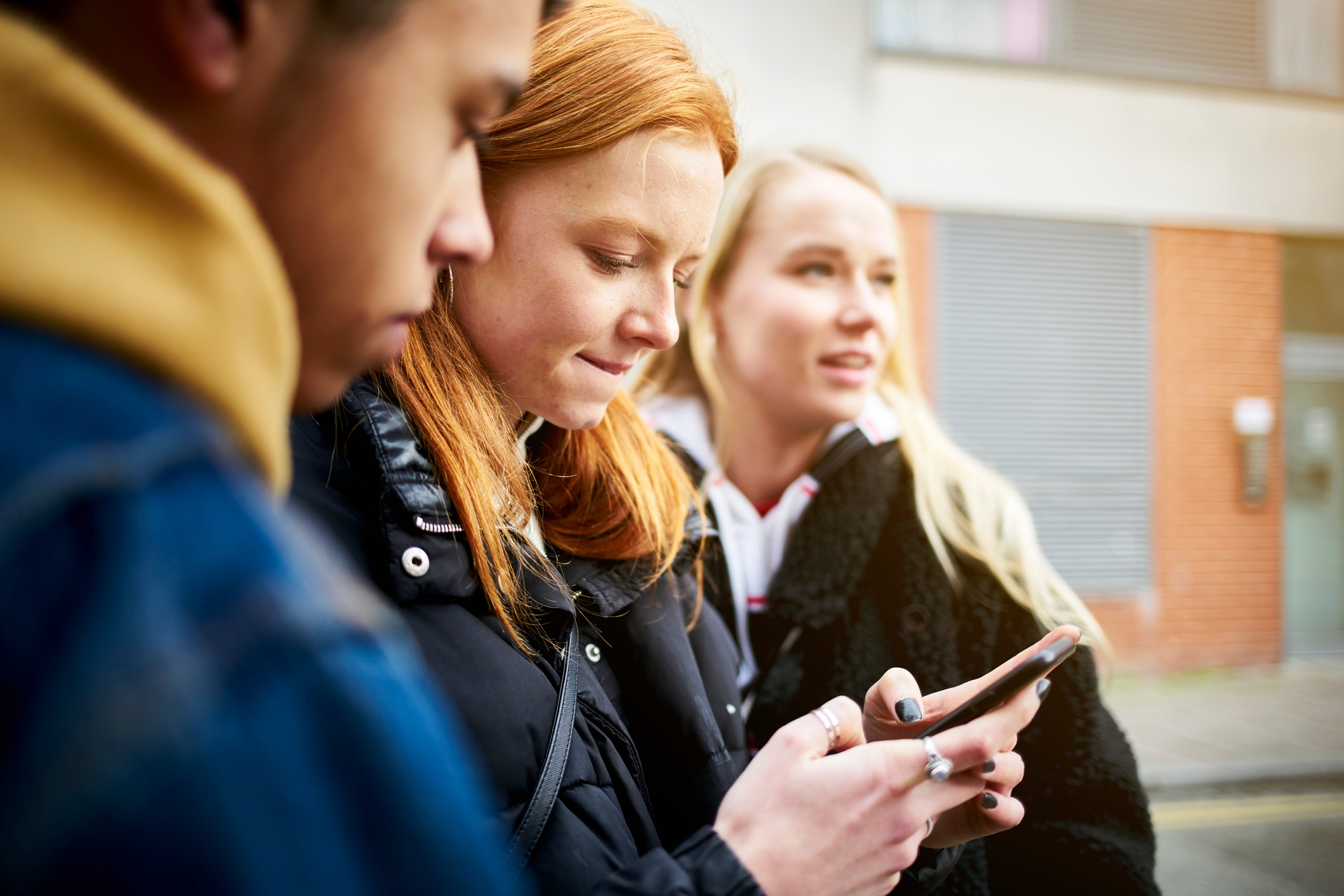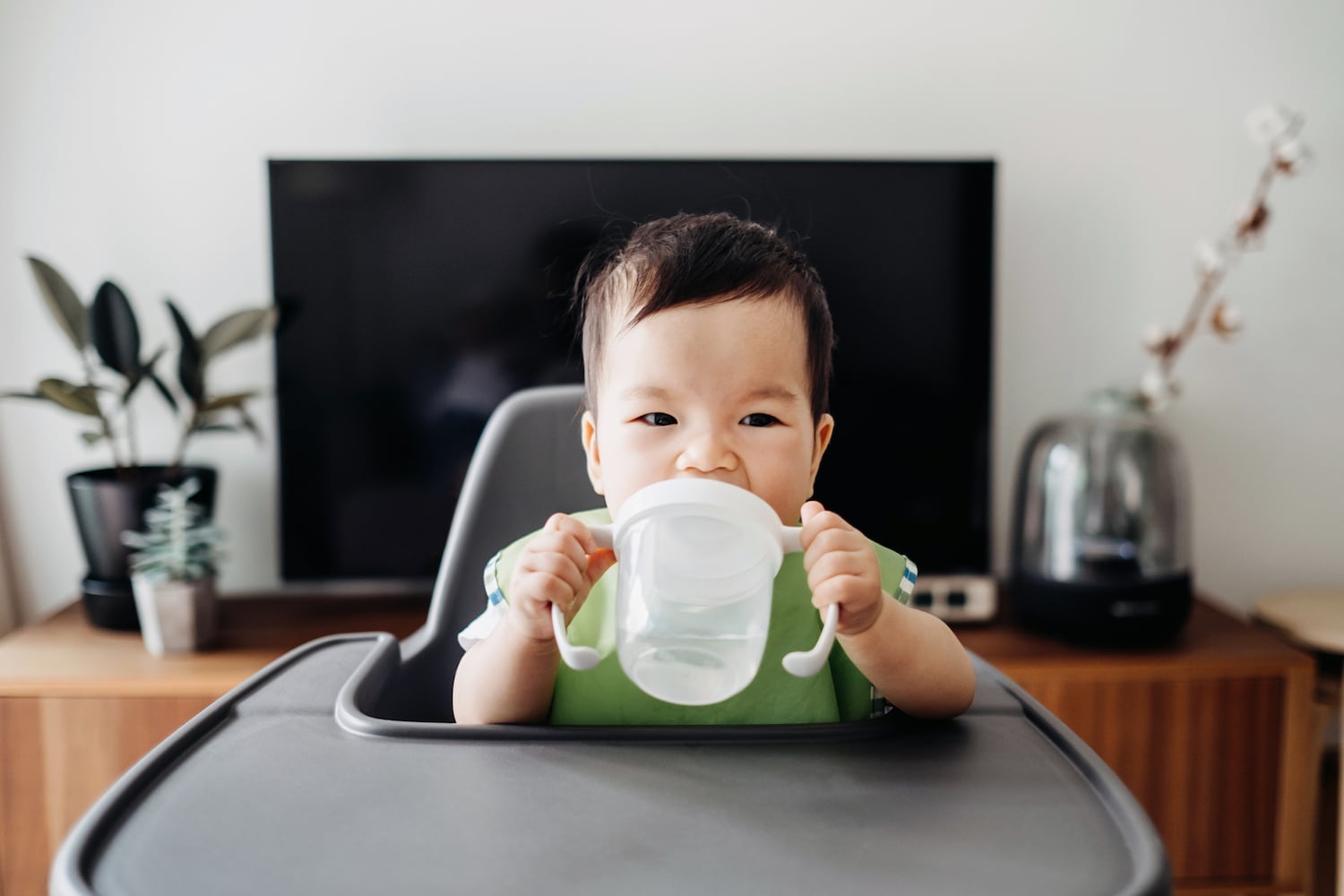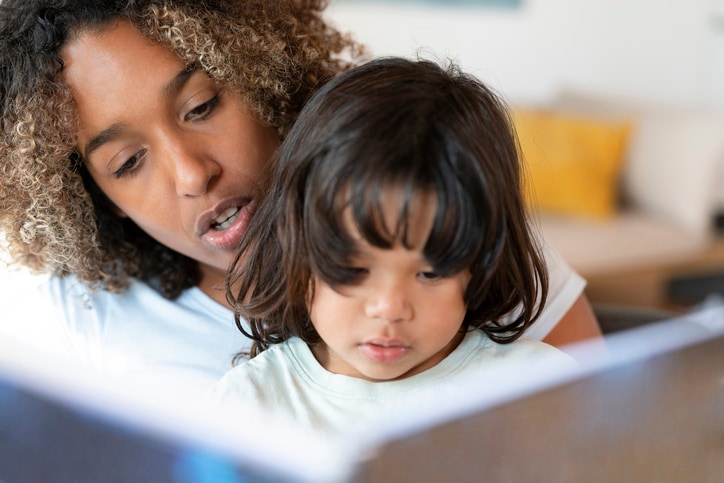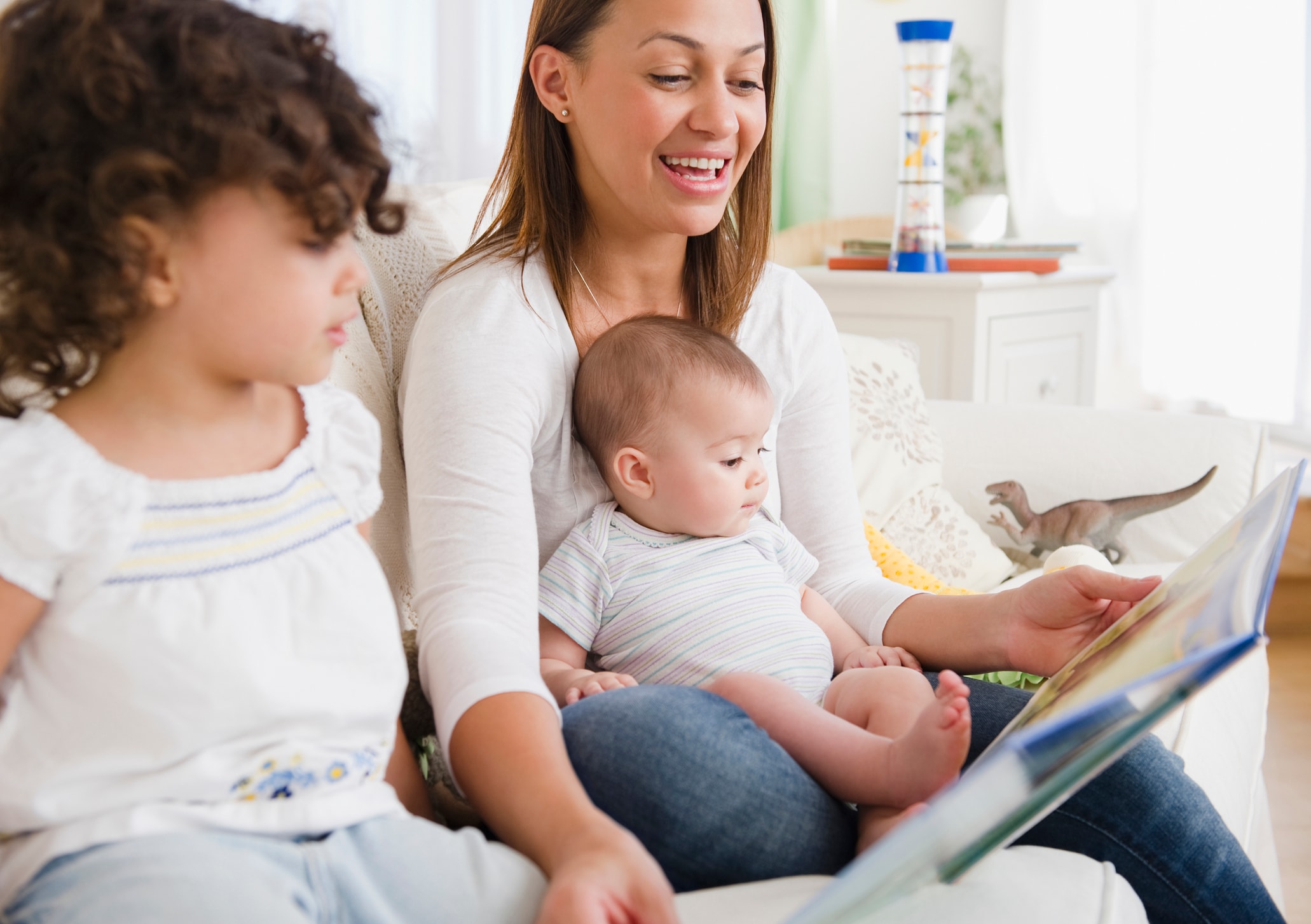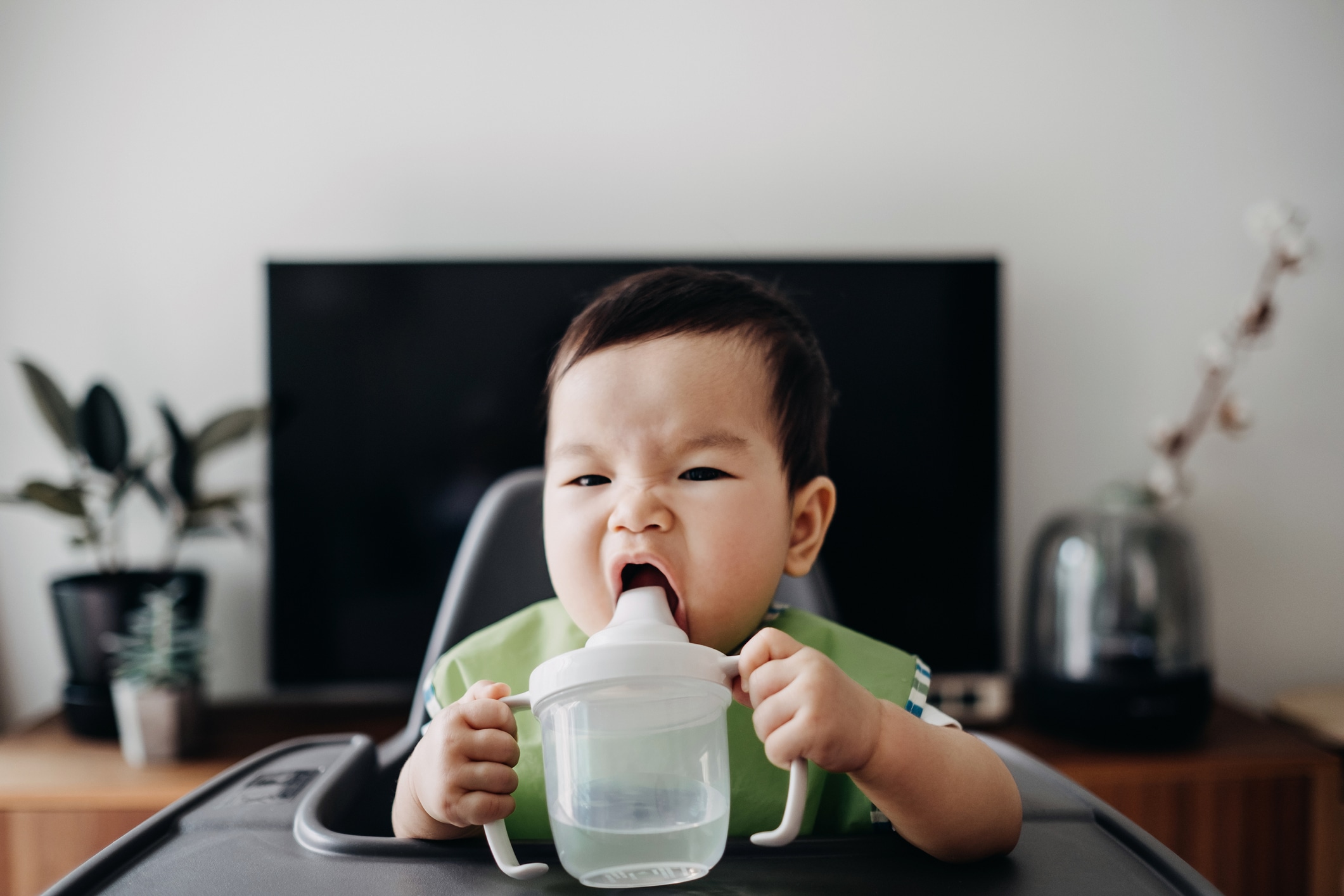COVID has complicated just about everything in life and that includes looking for child care. In addition to screening for the usual things, like a sitter’s references and how they vibe with the kids, parents now need to factor in COVID safety precautions.
“When it comes to hiring a sitter or nanny in the era of COVID, parents should look for caregivers who are operating with the same level of caution as them,” says Michelle LaRowe, lead educator at NannyTraining.com and author of “Nanny to the Rescue!” “For example, if you’re a family who still isn’t eating out at restaurants, you’re going to want to match with a sitter who is doing the same.”
While COVID numbers are trending in a positive direction in many parts, it’s still not time to throw all caution to the wind when looking for child care. “Even though the omicron variant cases are decreasing, it’s very contagious, especially to young, unvaccinated children,” notes Dr. Jen Trachtenberg, a board-certified pediatrician in New York City. “COVID is still an unpredictable disease in terms of severity and chronic symptoms and parents should still be cautious when hiring babysitters.”
And on that same token, while finding out if a potential sitter is vaccinated can alleviate some stress for families, Dr. Joshua K. Schaffzin, associate professor of clinical pediatrics, division of infectious diseases and director of infection prevention and control program at Cincinnati Children’s Hospital Medical Center, points out: “vaccination is not a license to stop masking and taking other precautions.” In short: We’re not out of the woods yet.
“COVID is still an unpredictable disease in terms of severity and chronic symptoms and parents should still be cautious when hiring babysitters.”
— DR. JEN TRACHTENBERG, PEDIATRICIAN
Looking for child care? Here’s what to take into consideration when hiring a nanny or babysitter during this phase of COVID.
Ask all the usual questions
First thing’s first when looking for a child care provider: Are they a good fit overall? In addition to screening for safety vigilance, make sure you discuss the same things you would pre-pandemic, including references and background checks. Here’s some guidance on the essential questions to ask a caregiver before hiring:
Questions to consider asking caregivers during the pandemic
1. Are you vaccinated?
According to experts, being vaccinated is the best way to mitigate serious cases of COVID. So, when interviewing potential sitters and nannies, be sure to ask about their vaccination status, as vaccines can help prevent the spread of COVID (but don’t eliminate it altogether).
“It’s unfortunate that this question needs to be asked and that COVID vaccination is so controversial and can get in the way of relationships between child care providers and children,” says Schaffzin. “But in the end, parents need to decide for themselves whether they want COVID vaccination to be a requirement for their babysitter, as well as vaccination against other diseases, like measles or chickenpox or flu.”
“From my standpoint, the vaccine is safe and effective, and not all children being cared for are yet eligible for vaccination, so babysitters should be encouraged, if not expected, to be vaccinated,” he adds.
If a candidate hasn’t been vaccinated, and it’s not a deal breaker for you, Dr. Amna Husain, a pediatrician in Marlboro, New Jersey, encourages parents to ask questions. “Inquire about why they’re not comfortable getting the vaccine,” Husain says. “It will give you more knowledge on the background of their beliefs and thought processes regarding the pandemic since vaccination is an important protective aspect for not only those vaccinated but those around them unable to be vaccinated, like babies and younger kids.”
Husain adds that knowing why someone chooses not to get vaccinated may also give insight about their “behaviors and habits outside of work,” such as indoor mask use and social distancing measures.
Is a recent COVID infection the same as being vaccinated?
If a potential sitter or nanny informs you that they already had COVID, it should not be interpreted as the natural equivalent of vaccination. “It’s still important for everyone eligible to be vaccinated,” Tractenberg says. “A recent case of COVID is protective, but we really don’t know for how long, and it can be different among each person. We also can’t yet anticipate if another variant will emerge so vaccination is our best tool to help minimize that from happening.”
“One of the reasons COVID continues to circulate two years into the pandemic is because natural immunity can’t control it,” Schaffzin adds. “Research has shown that it’s possible that more than a quarter of the earth’s population has had COVID. If natural immunity was effective, we would expect to see fewer cases over time; the opposite has been true.”
“One of the reasons COVID continues to circulate two years into the pandemic is because natural immunity can’t control it.”
— DR. JOSHUA K. SCHAFFZIN, ASSOCIATE PROFESSOR OF CLINICAL PEDIATRICS
“The bottom line is that vaccination is much more effective at providing immunity than anything else,” he continues. “If families add that to other mitigation tactics, their risk of getting COVID – or becoming severely ill if they do – plummets.”
2. How cautious are you about COVID?
The vaccination question may organically evolve to cover this one, but if not, you may choose to ask it. And you may not even have to because, as the saying goes: Actions speak louder than words. Observing a potential nanny or sitter’s actions during the interview — if it’s in person — may give you a better idea of how cautious they’re being than your conversation.
“One of the first things parents can look for is how the sitter presents at the interview,” LaRowe says, advising parents to take note of the following:
- Do they arrive wearing a mask?
- Do they offer to wash their hands or use sanitizer upon entering the home?
- Do they seem to be aware of their space and keep physical distance?
“Parents can also ask about the sitter’s interests and notice if they mention things they enjoyed before COVID versus now, to gain insight into the types of environments and activities they’re currently comfortable being and participating in,” LaRowe adds.
3. Are you working with other families?
Technically speaking, a sitter who’s working with more than one family has potential for more exposure, but according to both Schaffzin and Husain, it doesn’t mean you have to cross their name off the list. “Working with other families is less worrisome than the behavior of the other families and the babysitter while there,” Schaffzin says. Simply put: Is everyone exercising caution when around one another?
Keep in mind, though, even if you ask about the safety practices in place at another gig, you can’t know everything — especially when it comes to what the other family does on their own time. If a sitter is working with families who are in close proximity with others — and don’t exercise caution when doing so — it can affect risk, according to Husain.
Again, though, this is a question that’s practically impossible to find out. So, instead of agonizing over what you can’t control, consider your own risk comfort level. Global Epidemics has an interactive chart that can help you determine this, using pandemic information in real time.
4. Are you willing to wear a mask?
Even if a potential sitter or nanny is vaccinated, it doesn’t mean you should eschew masks. Everyone’s comfort level is different — and each person’s daily safety diligence affects this — but experts agree that, when it comes to COVID, a layered approach is best.
“The vaccine is an important component of the prevention bundle all of us should be following to prevent COVID transmission,” Schaffzin says. “But it’s not the only one. A vaccinated babysitter who doesn’t mask, work to distance when possible or facilitate regular hand hygiene isn’t providing as much protection as one who does.”
“Masking practices need not change right now,” he adds, adding that masks aren’t recommended for kids under 2 since they can’t verbalize when they’re uncomfortable. “Rather, families and babysitters should identify situations in which masking is expected and when it is not. During mealtime, masking would be a hindrance. But when in an enclosed public space, such as the library, it would be appropriate. The COVID vaccines are safe and are one of the most effective vaccines created, but no vaccine is 100%. Maintaining a bundle of interventions is good practice.”
5. Do you agree to communication around illness?
You may not be able to plan for every little thing in painstaking detail, but it’s smart to agree on, at the very least, communication about illness and potential exposures. According to Schaffzin, agree to come up with a “what if” plan for the following:
- What’s the plan if you or your child develops symptoms?
- What’s the plan if the nanny or babysitter develops symptoms?
- What’s the plan if the nanny or sitter’s family or other household member is ill or tests positive for COVID?
“Families and sitters should stay apart from one another until any symptoms improve or resolve,” he says. “Once time has passed and symptoms subside, the risk of transmission drops significantly. And an even more effective intervention would be to avoid each other when symptoms begin, not waiting for a positive lab test. There are plenty of viruses circulating that can cause similar symptoms and cause illness that can become severe.”
Additionally, it’s smart to have a conversation about what you’ll do about payment when situations like this come up in order to avoid future awkwardness. “Our sitter and I revised our sick day policy during the pandemic,” says Charlotte Miceli, a mom of three in White Plains, New York. “Keeping what we had didn’t seem fair when I was wary of her coming in with the sniffles — something I previously didn’t mind.”
6. Do you agree to communication around travel?
According to Schaffzin, formulating a cut and dried travel protocol is tough because “the risk of exposure varies and the situation changes rapidly.” But again, it’s important to discuss things, like quarantining, up front.
“In general, it’s recommended to quarantine after a higher-risk exposure, such as travel in a place of high prevalence and/or lack of adherence to prevention protocols,” Schaffzin says.
Here are guidelines the Centers for Disease Control and Prevention (CDC) currently has in place for unvaccinated folks and/or people who have not had COVID in the last 90 days:
- Quarantining for five days after travel.
- Getting a rapid or laboratory viral test three to five days after returning.
- Quarantining and testing, regardless of history or vaccination status, if symptoms develop.
7. Do you agree to the following safety protocols?
“The key to COVID prevention is to focus on being proactive in prevention,” Schaffzin says. On that note, he recommends sitters and families practice the following at home:
- Masking. Rather than looking for opportunities when masking is not needed, look for ways to support [and encourage] it,” he says. “Talk through scenarios and be clear with each other on expectations.”
- Hand hygiene. “Make sure hand hygiene gel is available with the right odors and colors that kids will be willing to use.”
- Regular general disinfection of surfaces. Follow this general guidance for home cleaning during COVID.
Another question LaRowe recommends asking: “Are you willing to take on the role with the current limitations we have regarding outings and playdates due to COVID?”
“At the end of the day, parents will want to know if they can trust their sitter to follow the same COVID protocols they do when on the clock, as well as being safe on their own time,” LaRowe says.
It may be more work on the front end — and a little awkward — but tackling the subject of COVID safety during the interview process will help keep both your family and your sitter as safe as possible. “One thing we have learned during COVID is the damage we do when we avoid interaction and personal contact,” Schaffzin says. “Families hire babysitters and nannies to ensure their children are cared for and loved. We should not dismiss the effect that taking that away has on us and our families.”
“Families hire babysitters and nannies to ensure their children are cared for and loved. We should not dismiss the effect that taking that away has on us and our families.”
— DR. JOSHUA K. SCHAFFZIN, ASSOCIATE PROFESSOR OF CLINICAL PEDIATRICS
“As we have said all along, we are in this together,” he continues. “The sitter-parent relationship has always been driven by collaboration to promote safety, health and development of the children, and for COVID, it is no different.”

